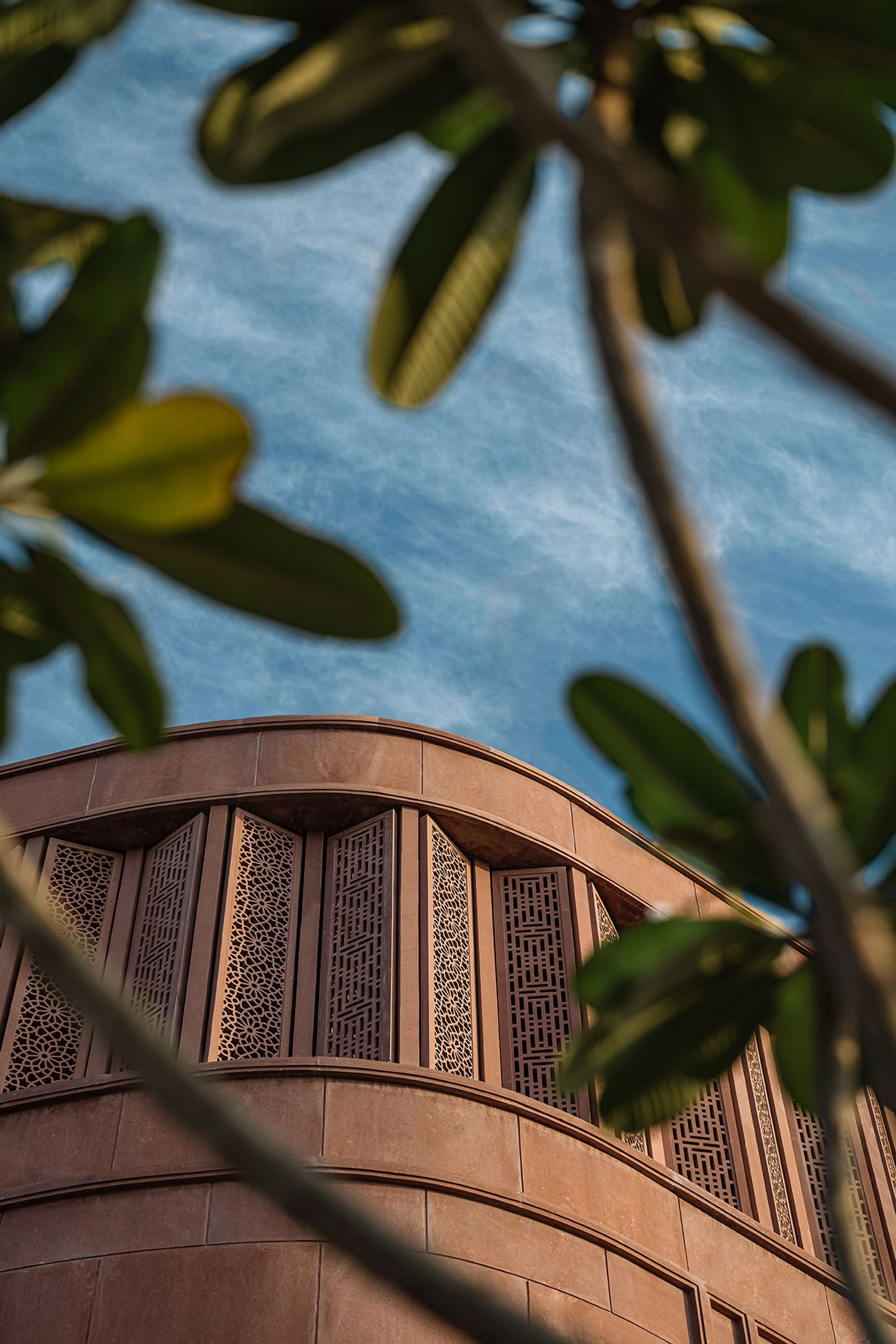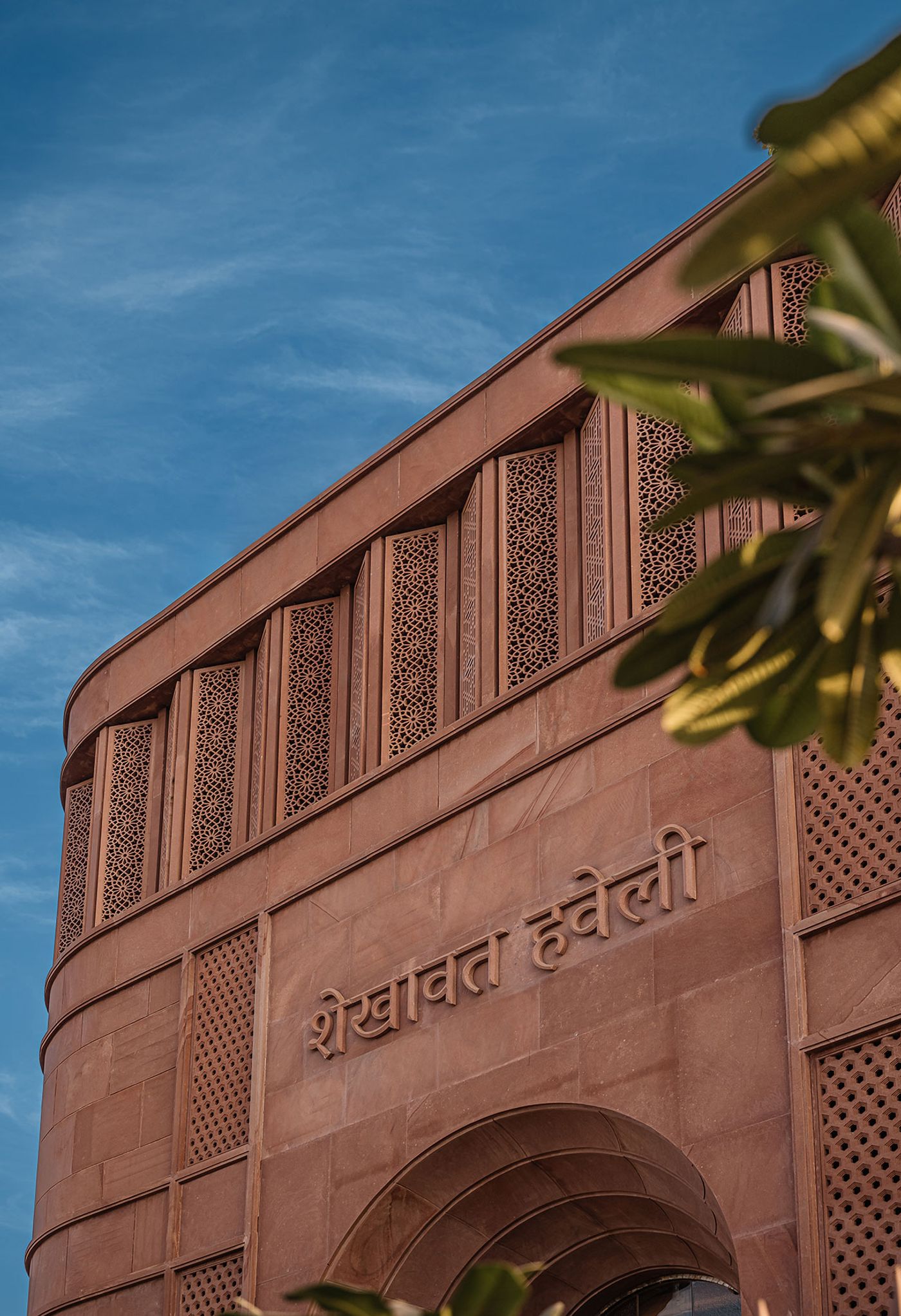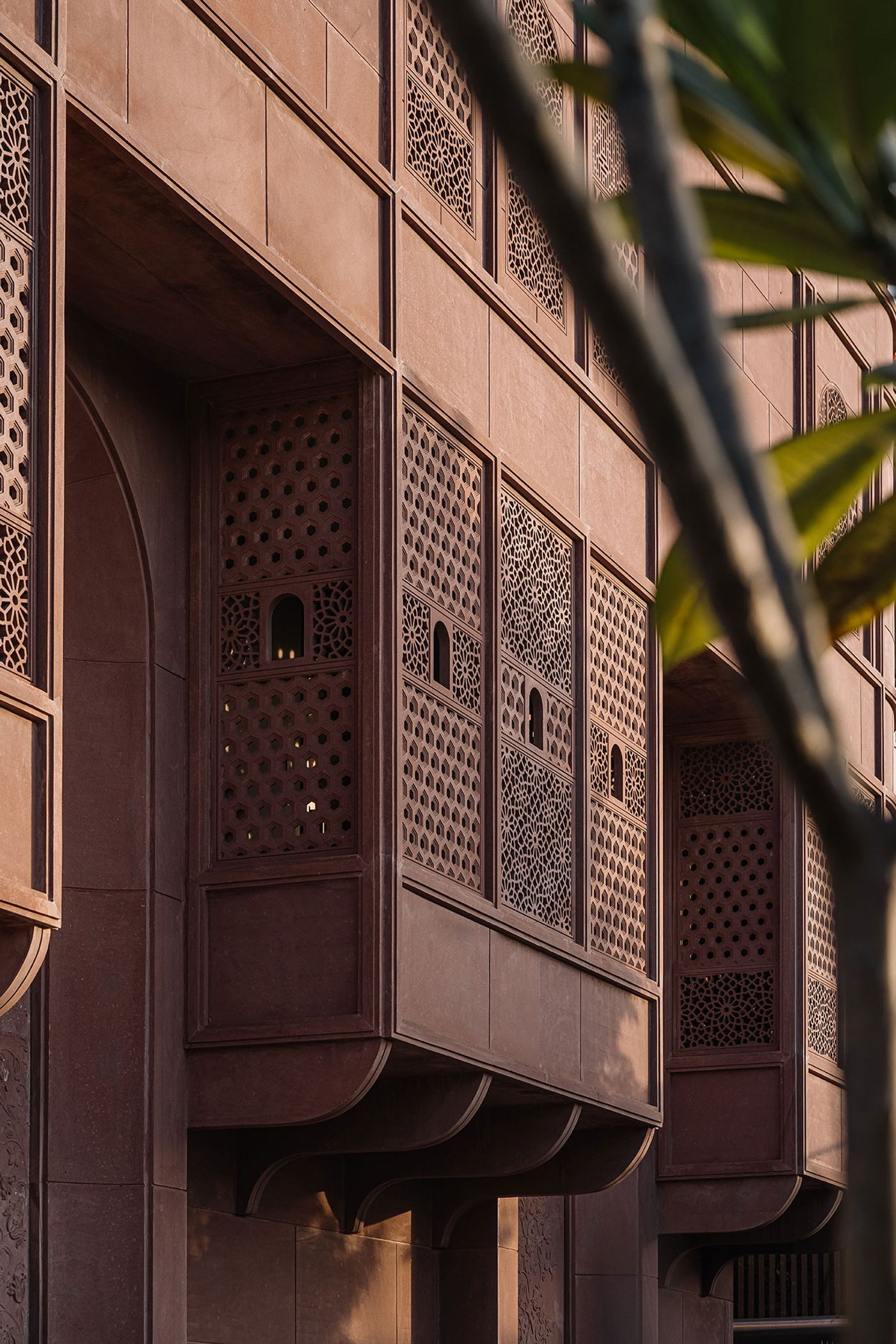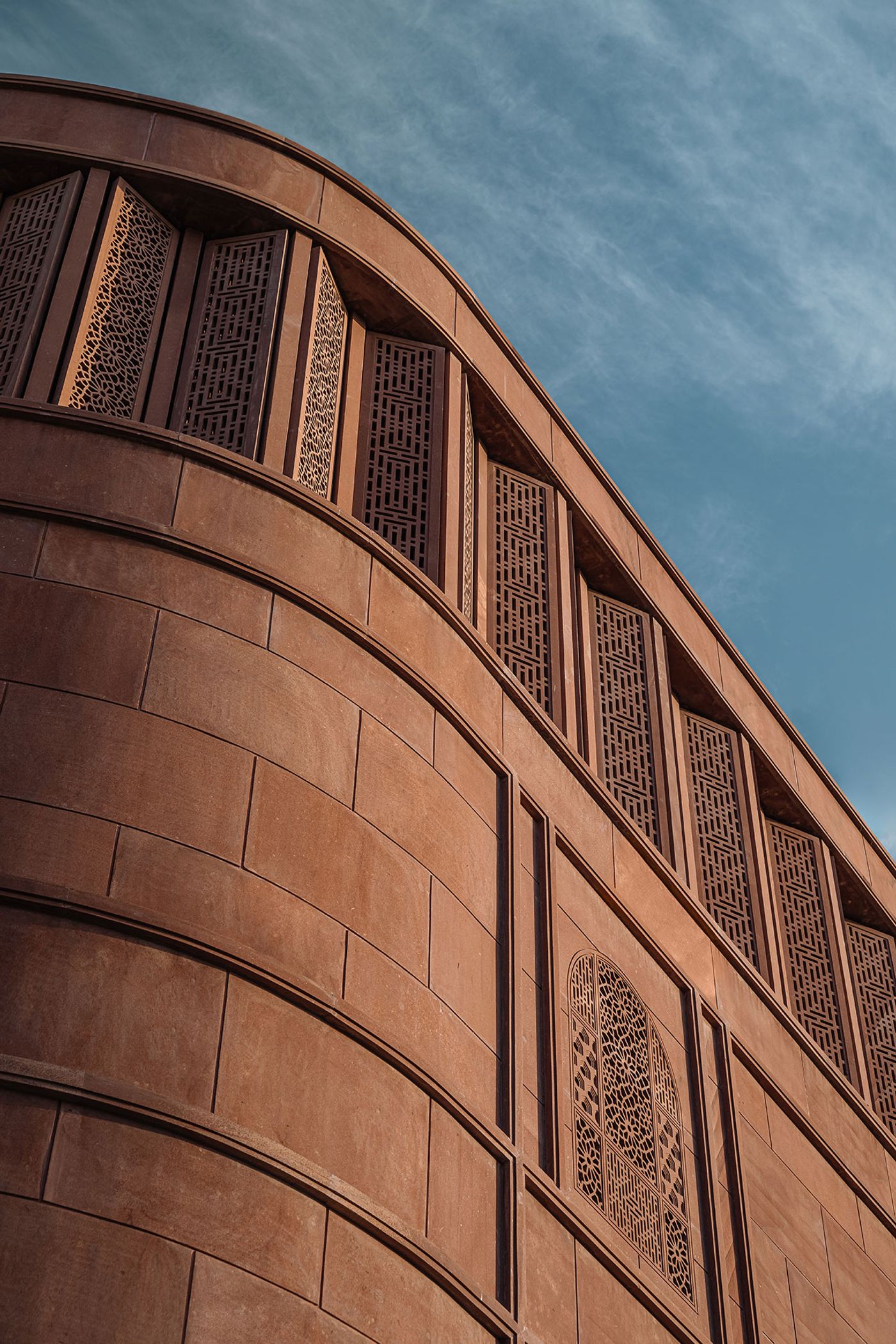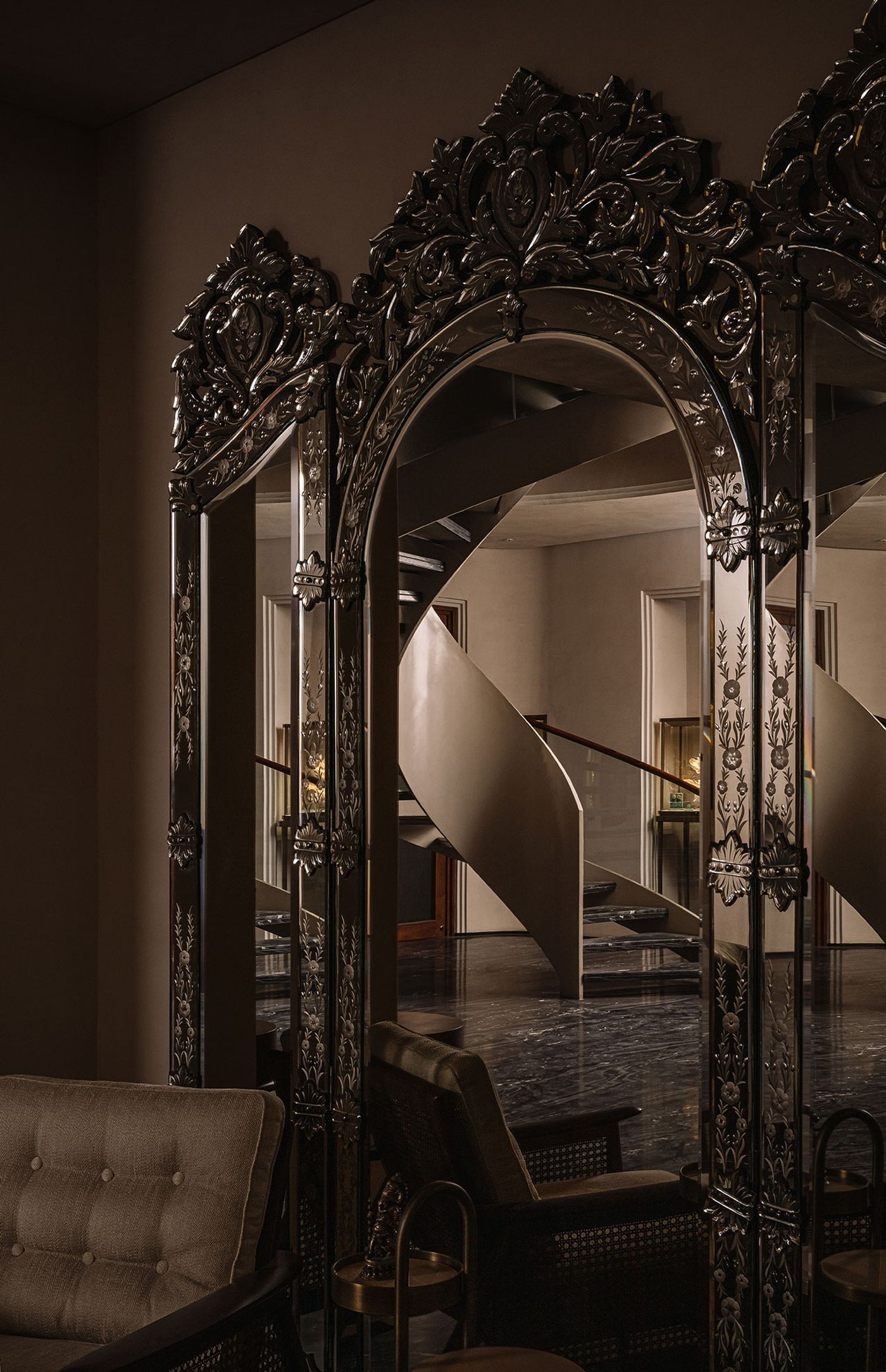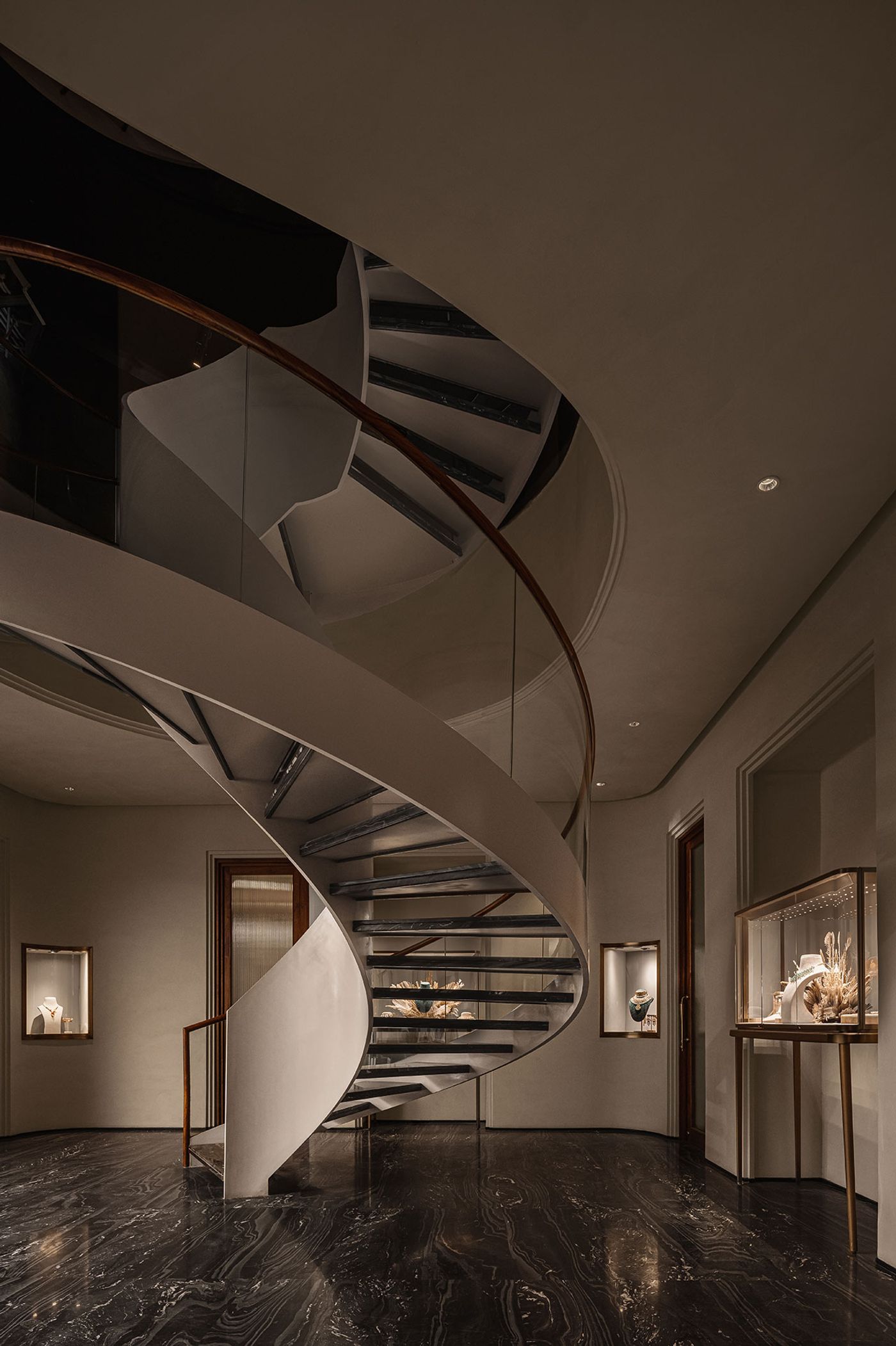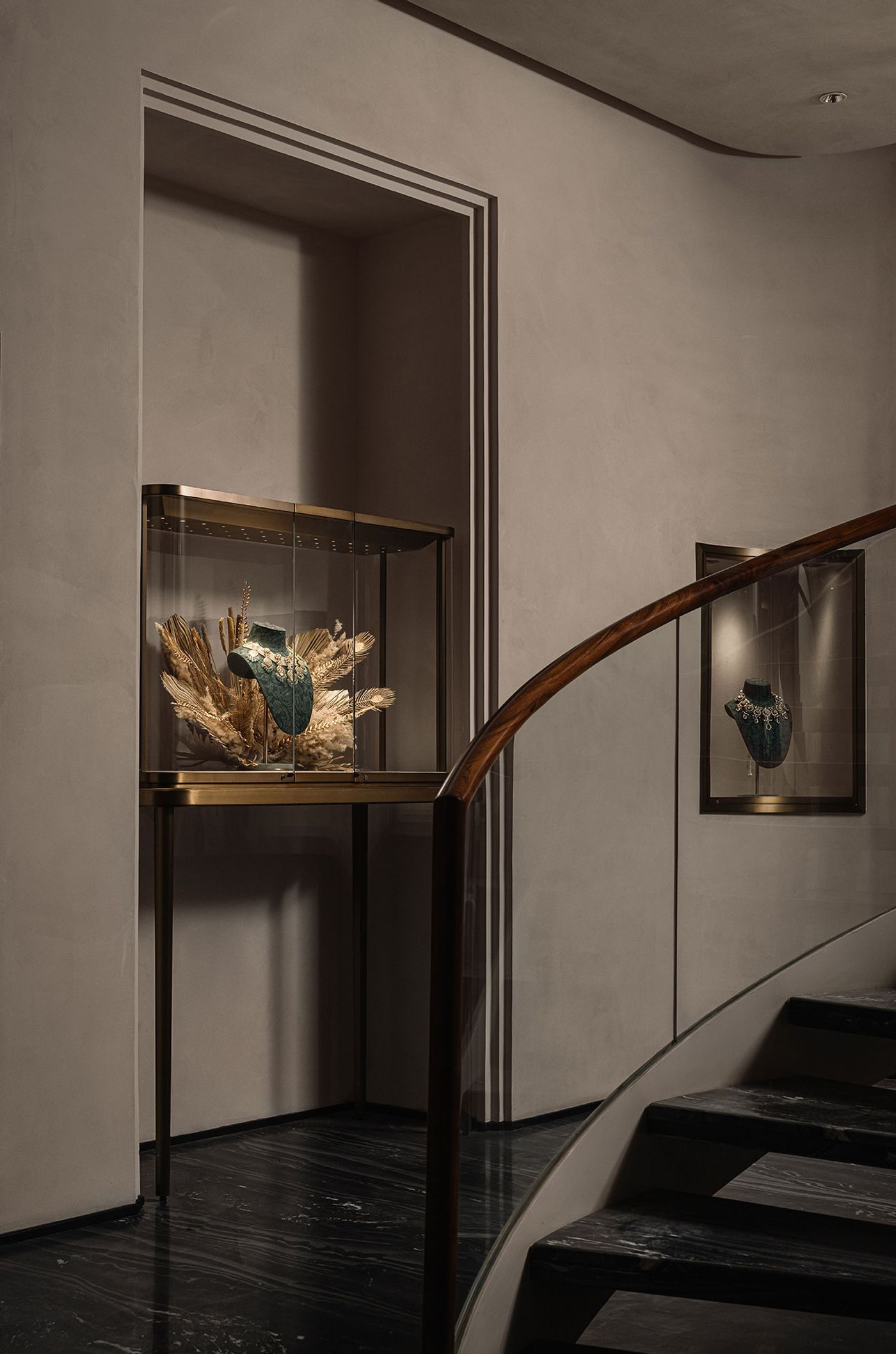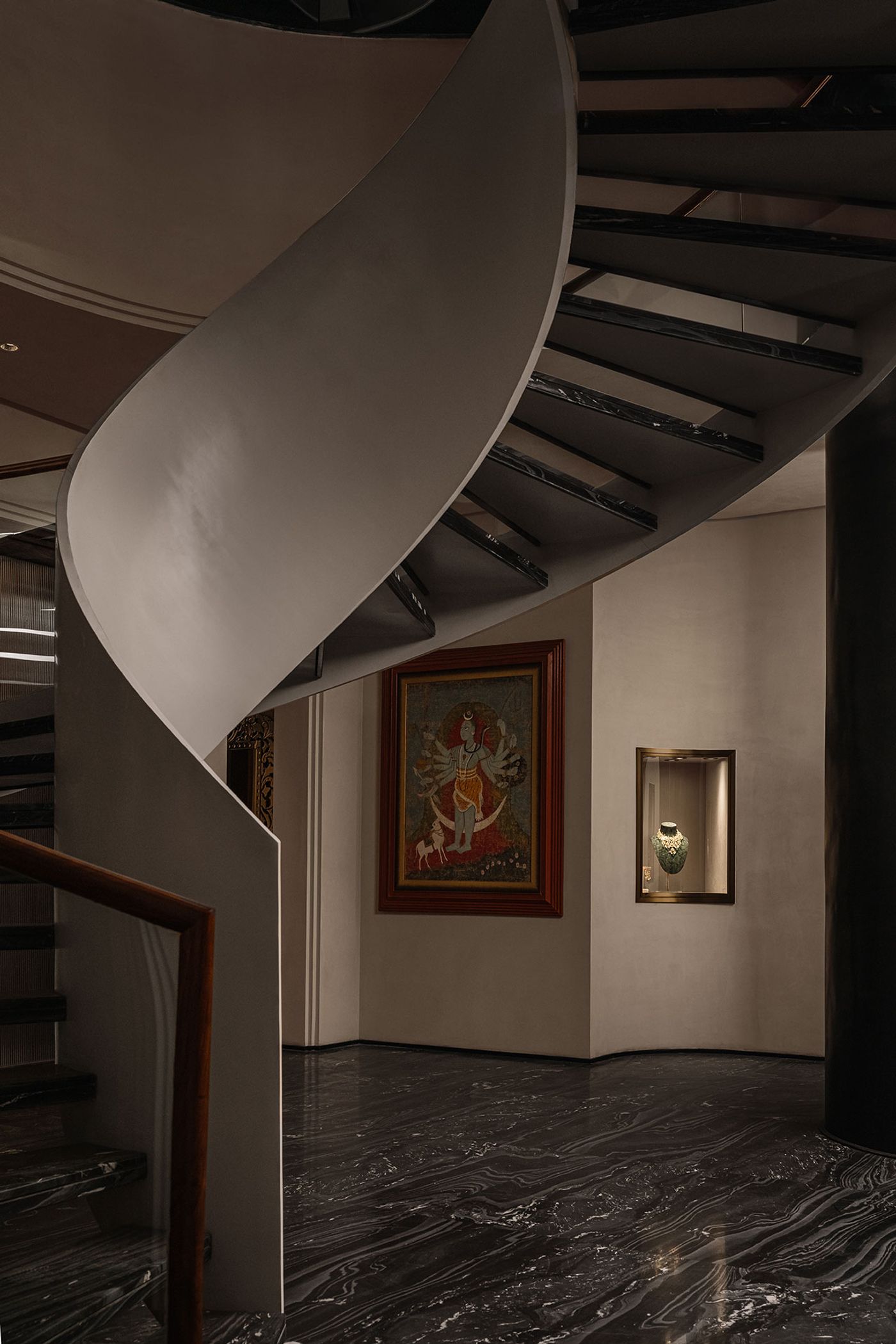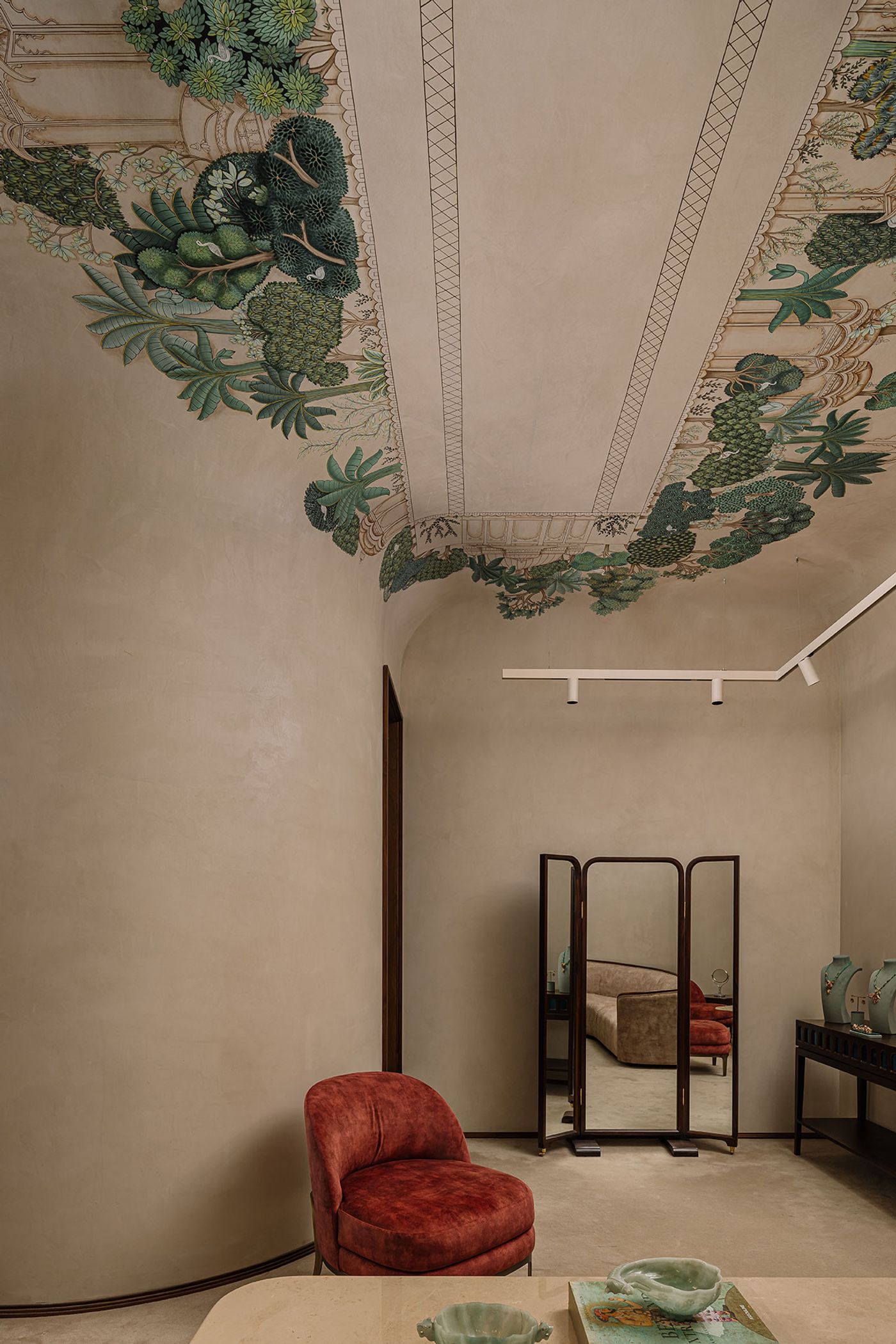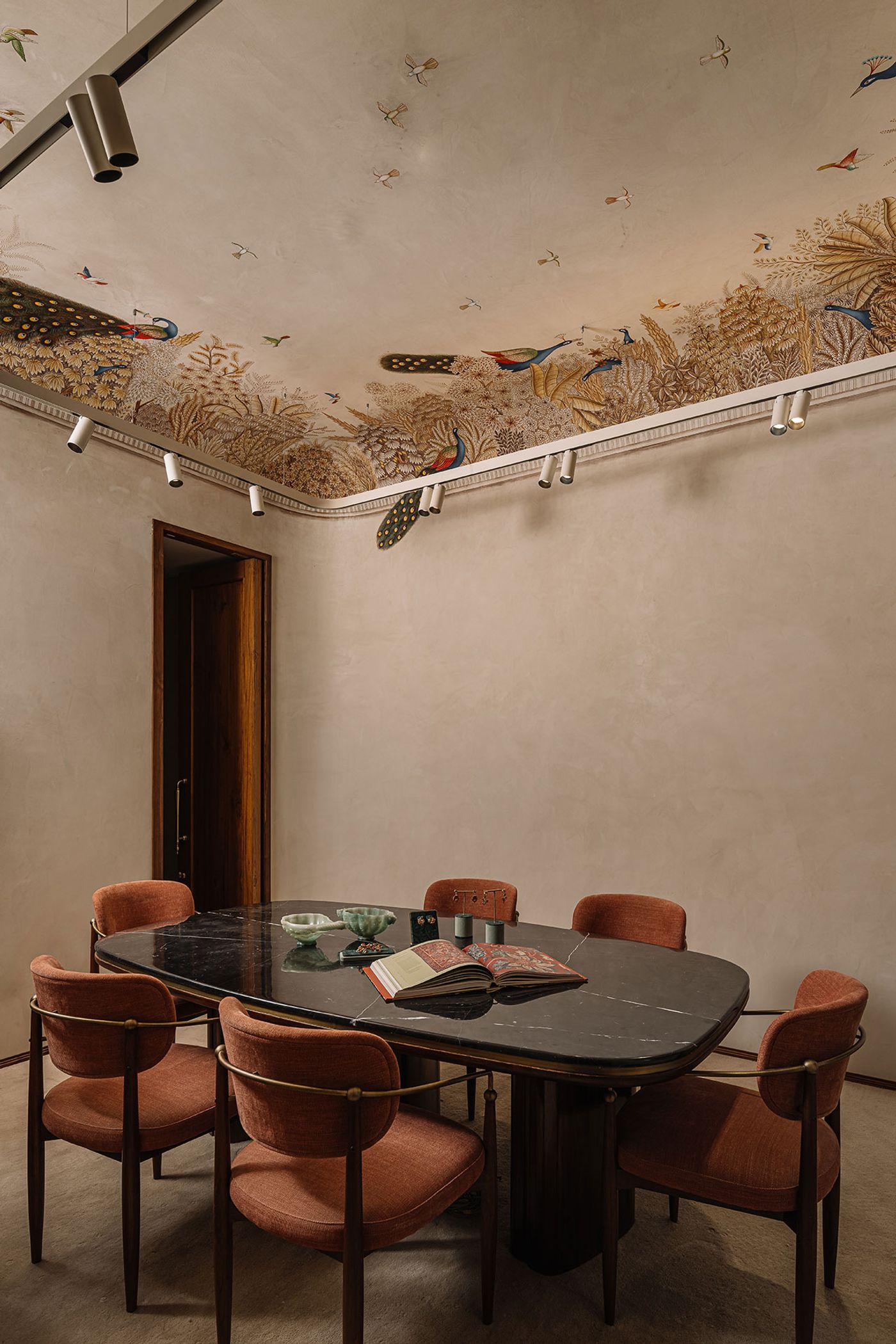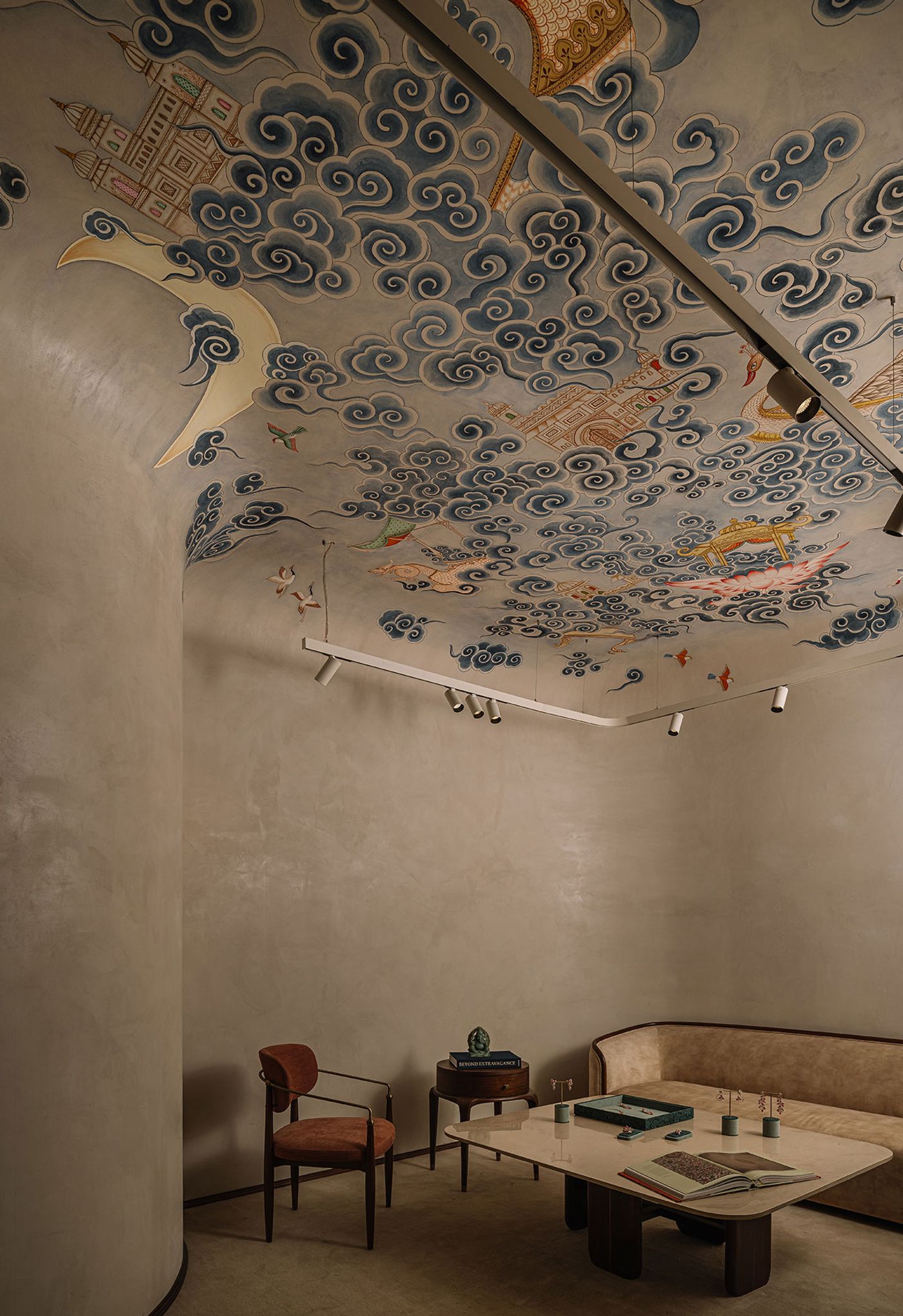
A Jewel of Heritage: Sunita Shekhawat’s Flagship Store and Meenakari Museum in Jaipur
Words by Yatzer
Location
Jaipur, India
A Jewel of Heritage: Sunita Shekhawat’s Flagship Store and Meenakari Museum in Jaipur
Words by Yatzer
Jaipur, India
Jaipur, India
Location
Veteran Indian jewellery designer Sunita Shekhawat is known for breathing new life into the ancient craft of Meenakari, an age-old art form of enamelling metal surfaces with vibrant colours, patterns, and designs. So when her eponymous brand’s new flagship store in Jaipur was under development, it was decided that it should also house a museum-gallery dedicated to exploring, preserving, and celebrating the Meenakari craft. Going one step further, New Delhi-based multidisciplinary design practice Studio Lotus channelled Jaipur’s architectural legacy and traditional artistry throughout their design. The result is a jewel-like building of artisanal craftsmanship, showcasing meticulously crafted interior frescoes and a striking hand-carved sandstone facade that evocatively echoes the pink palette the city is known for.

Photography by Ishita Sitwala.

Photography by Ishita Sitwala.

Photography by Ishita Sitwala.

Photography by Ishita Sitwala.

Photography by Ishita Sitwala.

Photography by Ishita Sitwala.

Photography by Ishita Sitwala.
Beginning with their decision to preserve an existing concrete shell on the site, Studio Lotus’s approach was rooted in sustainability which also dictated the use of local materials, most notably Jodhpur red sandstone. Hand-carved by an army of skilled artisans, the sandstone façade features intricate latticework patterns that draw from different historical periods of the region—Rajputana, Mughal, and Art Deco. More than a stylistic compendium of Jaipur’s architectural heritage, the decorative variations reflect Shekhawat’s own design approach to her jewellery, which, while rooted in tradition, crosses over seamlessly into European and other contemporary iterations.
Once inside, visitors are greeted by a sweeping sculptural staircase, a dynamic architectural feature that winds through the heart of the building, connecting all three floors. This central staircase is symbolic, tying together the different functions of the building, from retail to office spaces, and serving as a metaphor for the interconnectedness of tradition and modernity.Originally intended as retail space, the building’s ground floor houses the Museum of Meenakari Heritage. Curated by Usha Balakrishnan, a leading authority on Indian jewellery, the museum experience has been designed by Siddhartha Das Studio, with each exhibit tracing the evolution of the 16th century Meenakari craft and showcasing its significance in both historical and contemporary contexts.

Photography by Ishita Sitwala.

Photography by Ishita Sitwala.
The lower ground floor is where the retail magic happens, featuring private client pods for intimate, one-on-one consultations. These bespoke spaces are works of art in themselves, adorned with off-white ‘araish’ lime stucco and semi-vaulted ceilings intricately embellished with frescoes depicting the local architecture and flora. Created over several months by 12 skilled artisans, the frescoes represent the same hand-crafted luxury that defines Shekhawat’s jewellery, resulting in a space that is both an ode to craft and a functional setting for bespoke luxury retail.

Photography by Ishita Sitwala.
Above, the first floor houses the client’s office and design studio, a bright, daylit space crafted from lime plaster, stone, and terrazzo. This level accommodates the brand’s design operations, further linking the creative process with the client experience. The top floors are envisioned as future extensions which will include a restaurant offering panoramic views of the nearby Rajmahal Palace.
Transcending traditional retail, the flagship store offers an experience where the art of jewellery making takes centre stage. With its museum-gallery dedicated to the Meenakari craft, the venue not only showcases Shekhawat’s exquisite jewellery but also positions the brand as a guardian of Rajasthan’s artistic legacy, inviting visitors to engage deeply with the cultural history of this ancient craft.

Photography by Ishita Sitwala.

Photography by Ishita Sitwala.

Photography by Ishita Sitwala.

Photography by Ishita Sitwala.
